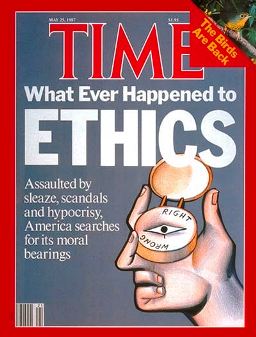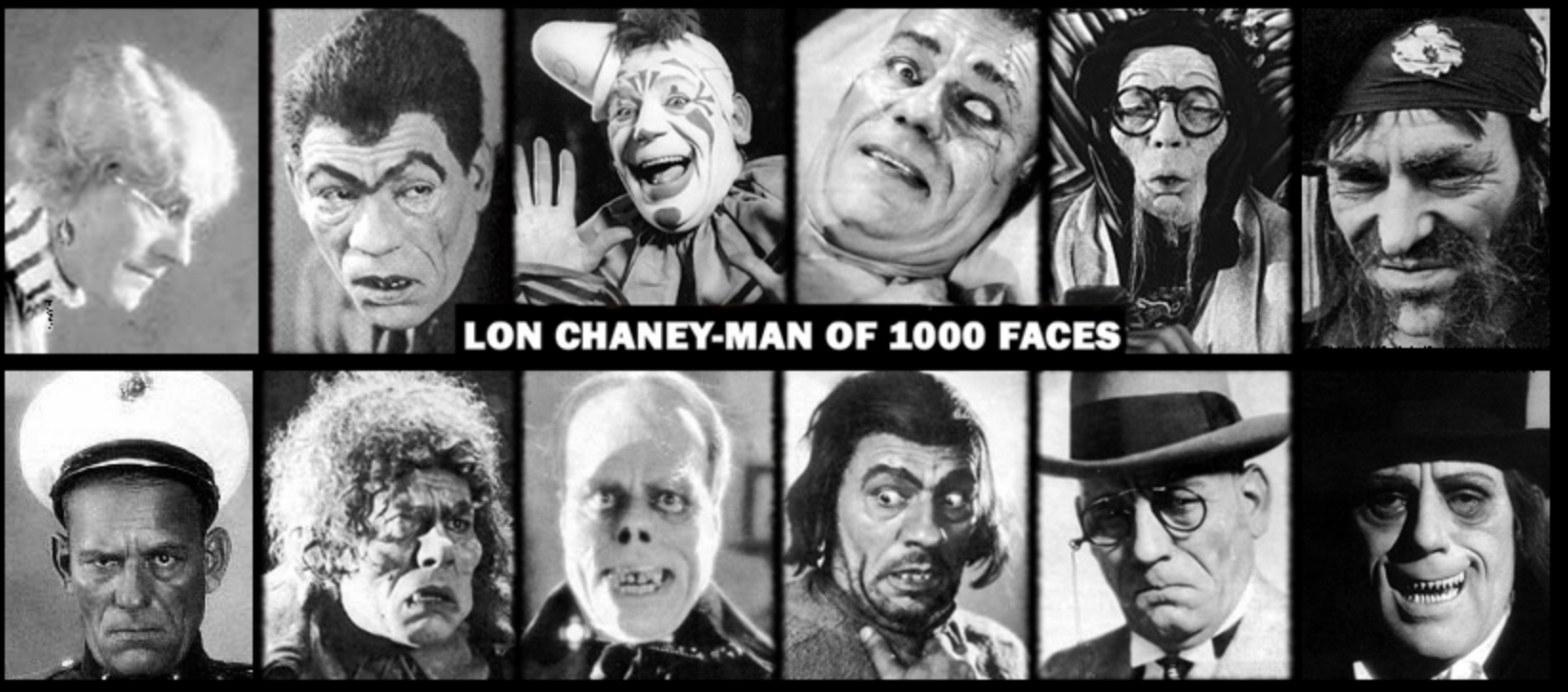On page A-18 of Thursday’s (April 9) print edition of the New York Times, three of the four stories on that page were about ethics:
- “New Scrutiny of Other Alaska Corruption Cases”
- “Director of Ethics Office Is Replaced at Justice Department”
- “Congressional Ethics Office Opens Inquiry into Rep. Jackson”

I typed “ethics” into The Washington Post search engine and came up with 363 results; “corruption,” yielded 415 results.
I found similar results searching both the New York Times andWall Street Journal.
Then there’s the cover story from Time magazine (above). Miss that issue? Take a close look at the date. It’s May 25,1987.
An inside story begins with this: “‘Government isn’t the solution,’ Ronald Reagan regularly intoned before coming to Washington. ‘Government is the problem.’ The Government, went his litany, was bloated with ‘waste, fraud and abuse,’ all of which desperately needed purging. His words proved prophetic, though not precisely in the way he intended: his Administration, from its very beginning, has been riddled from top to bottom with allegations of impropriety and corruption.
“More than 100 members of the Reagan Administration,” the article continues, “have had ethical or legal charges leveled against them. That number is without precedent…”
Another story from the same issue starts with this observational gem: “Not since the reckless 1920s has the business world seen such searing scandals.”
Do any of these golden oldies of broken trust ring a bell: Oliver North, Robert McFarlane, Michael Deaver, Ivan Boesky, Gary Hart, Clayton Lonetree, Jim and Tammy Faye Bakker? All were either under investigation or involved in ethics scandals.
“Ethics…” the Time cover story observed, “is now at the center of a new national debate…” and asked, “…has the mindless materialism of the ’80s left in its wake a values vacuum?”
Oh, to return to the days when we only had to deal with “searing scandals,” and “mindless materialism” instead of the obscenely grotesque billion-dollar frauds and corruption of today.
What was the Time cover story the week preceding the “Ethics” cover: “[Democrat Gary] Hart’s Fall,” with the cover stories: “Sex and Politics,” “Questions About Press Ethics.”
Of course, now, we only have to deal with Eliot Spitzer, John Edwards, Rush Limbaugh, et al.
From January 1st to December 31st, 2007, I tracked, clipped and pasted a total of 1,657 ethics-related stories I found in theWashington Post and New York Times.
That’s 4.55 ethics-related stories per day! That’s more than stories covering the wars in Iraq and Afghanistan; more than health care, and more than the environment. The economy is the only issue that consistently beats ethics in terms of the number of stories and that’s only because it has dominated the news for the last 18 months.
After the first ethics talk I gave in September 1995, I was told by an audience member that “…your talk couldn’t be more timely!” At lunch with a friend discussing my blog last week, he told me that, “…your commentaries on ethics couldn’t be more timely.”
My point: Ethics is always going to be an important issue. Ethics is the infrastructure for the way things should be. Good ethical conduct can only come about through an awareness of the ethical implications of the decisions we make as well as the discipline to avoid the pitfalls to our own integrity.
According to ethicist Michael Josephson, the four enemies of integrity are Self-Interest – things we want; Self-Protection – things we don’t want; Self-Deception – it’s not an ethical issue; and Self-Righteousness – end justifies the means.
If we are willing to improve our understanding of ethics, we can, as Josephson points out, “be better prepared to face the ethical challenges of daily life.”
“If you have integrity,” former Senator Alan Simpson famously said, “nothing else matters. If you don’t have integrity,nothing else matters.”
Comments








